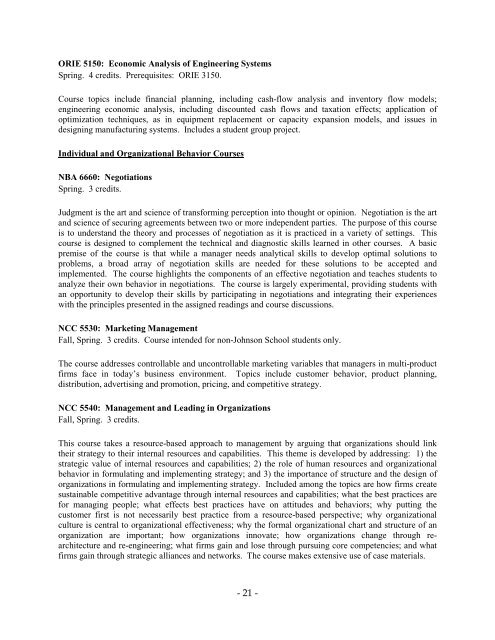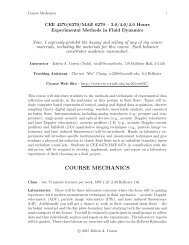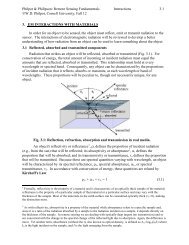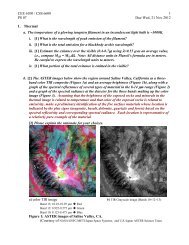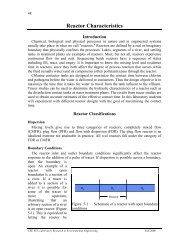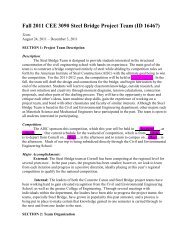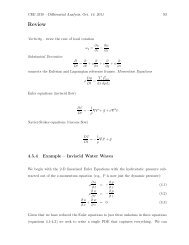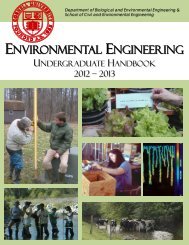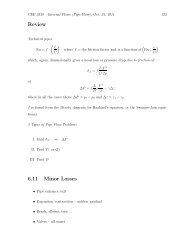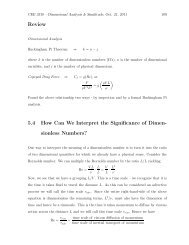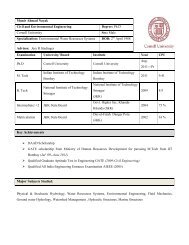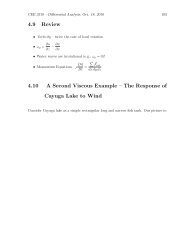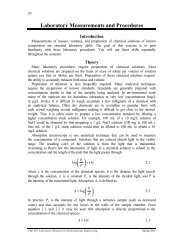Handbook 2013-14 - Civil & Environmental Engineering - Cornell ...
Handbook 2013-14 - Civil & Environmental Engineering - Cornell ...
Handbook 2013-14 - Civil & Environmental Engineering - Cornell ...
Create successful ePaper yourself
Turn your PDF publications into a flip-book with our unique Google optimized e-Paper software.
ORIE 5150: Economic Analysis of <strong>Engineering</strong> Systems<br />
Spring. 4 credits. Prerequisites: ORIE 3150.<br />
Course topics include financial planning, including cash-flow analysis and inventory flow models;<br />
engineering economic analysis, including discounted cash flows and taxation effects; application of<br />
optimization techniques, as in equipment replacement or capacity expansion models, and issues in<br />
designing manufacturing systems. Includes a student group project.<br />
Individual and Organizational Behavior Courses<br />
NBA 6660: Negotiations<br />
Spring. 3 credits.<br />
Judgment is the art and science of transforming perception into thought or opinion. Negotiation is the art<br />
and science of securing agreements between two or more independent parties. The purpose of this course<br />
is to understand the theory and processes of negotiation as it is practiced in a variety of settings. This<br />
course is designed to complement the technical and diagnostic skills learned in other courses. A basic<br />
premise of the course is that while a manager needs analytical skills to develop optimal solutions to<br />
problems, a broad array of negotiation skills are needed for these solutions to be accepted and<br />
implemented. The course highlights the components of an effective negotiation and teaches students to<br />
analyze their own behavior in negotiations. The course is largely experimental, providing students with<br />
an opportunity to develop their skills by participating in negotiations and integrating their experiences<br />
with the principles presented in the assigned readings and course discussions.<br />
NCC 5530: Marketing Management<br />
Fall, Spring. 3 credits. Course intended for non-Johnson School students only.<br />
The course addresses controllable and uncontrollable marketing variables that managers in multi-product<br />
firms face in today’s business environment. Topics include customer behavior, product planning,<br />
distribution, advertising and promotion, pricing, and competitive strategy.<br />
NCC 5540: Management and Leading in Organizations<br />
Fall, Spring. 3 credits.<br />
This course takes a resource-based approach to management by arguing that organizations should link<br />
their strategy to their internal resources and capabilities. This theme is developed by addressing: 1) the<br />
strategic value of internal resources and capabilities; 2) the role of human resources and organizational<br />
behavior in formulating and implementing strategy; and 3) the importance of structure and the design of<br />
organizations in formulating and implementing strategy. Included among the topics are how firms create<br />
sustainable competitive advantage through internal resources and capabilities; what the best practices are<br />
for managing people; what effects best practices have on attitudes and behaviors; why putting the<br />
customer first is not necessarily best practice from a resource-based perspective; why organizational<br />
culture is central to organizational effectiveness; why the formal organizational chart and structure of an<br />
organization are important; how organizations innovate; how organizations change through rearchitecture<br />
and re-engineering; what firms gain and lose through pursuing core competencies; and what<br />
firms gain through strategic alliances and networks. The course makes extensive use of case materials.<br />
- 21 -


